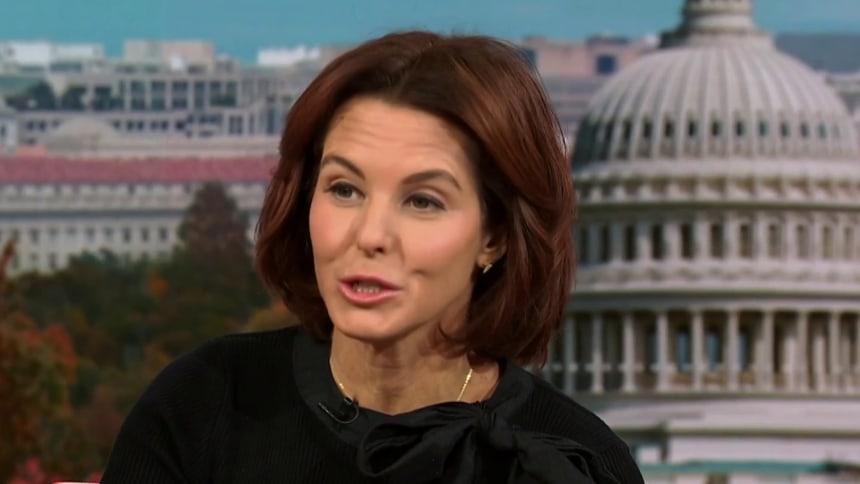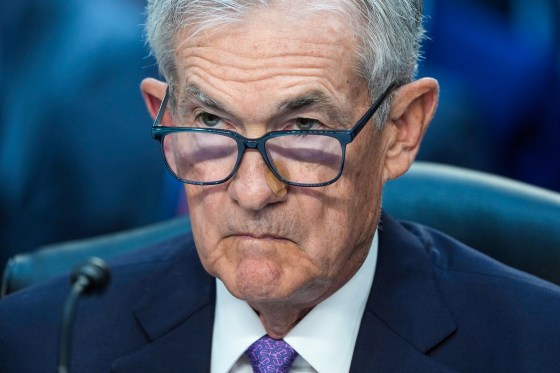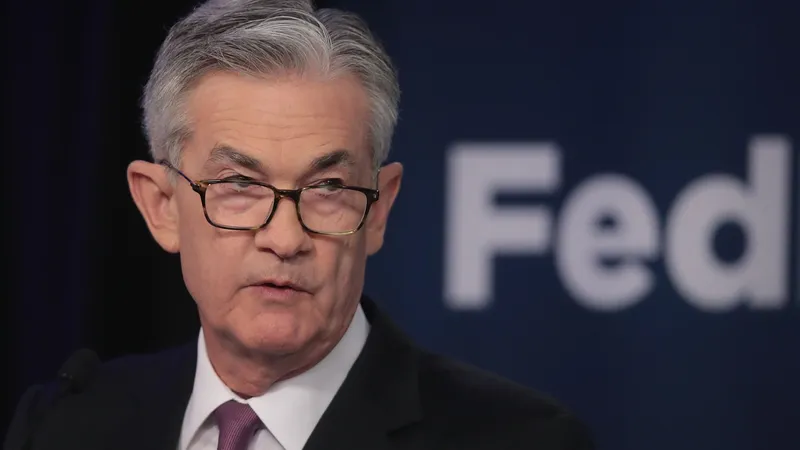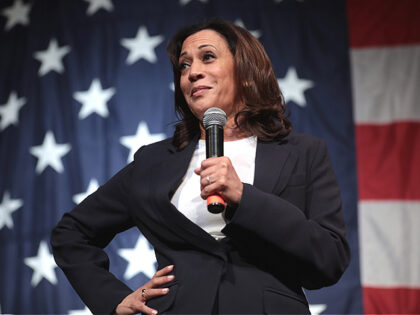from Liberty and Finance
Breitbart Business Digest: How Trumponomics Can Reduce Inflation
by John Carney
Breitbart.com
 A GOP Sweep Won’t Lead to Higher Inflation
A GOP Sweep Won’t Lead to Higher Inflation
The conventional wisdom on Wall Street has long been that a sweep by Republicans in the election would be inflationary. That’s probably wrong.
The basic idea behind the claim that a unified Republican government would be more inflationary than a divided government is that GOP control would lead to a great fiscal expansion in the form of tax cuts fueling higher deficits. More generally, many analysts believe that without an opposition empowered to rein in ambitious economic plans, parties tend to become fiscally irresponsible.
Historically, however, this is not the rule. While on average inflation is a bit higher during periods of unified government, it has also often been lower. Going all the way back to the Truman administration, inflation was much higher during the periods of divided government than unified government. The same pattern applies to the Eisenhower administration: lower inflation during the period of unified Republican control, higher when Democrats gained control of Capitol Hill.
Why Data Points On the Economy Aren’t Telling the Full Story
We came out of the Covid pandemic and then experienced the biggest inflation spike that most of us have seen in our lifetime. That takes a toll.
by Stephanie Ruhle
MSNBC
 In the aftermath of the election, there’s been a lot of talk about how anger over the U.S. economy helped fuel Donald Trump’s win. According to the NBC News Exit Poll, 46% of Americans said their family’s financial situation was worse today than it was four years ago.
In the aftermath of the election, there’s been a lot of talk about how anger over the U.S. economy helped fuel Donald Trump’s win. According to the NBC News Exit Poll, 46% of Americans said their family’s financial situation was worse today than it was four years ago.
That number may come as a shock to people looking at the overall state of the U.S. economy. Under President Joe Biden and Vice President Kamala Harris, we’ve seen significant job growth, wage increases and unemployment rates at historic lows.
But for Americans just trying to make it through their daily lives, those data points don’t tell the whole story. The fact of the matter is we came out of the darkest hole, the Covid pandemic, and then we experienced the biggest inflation spike that most of us have seen in our lifetime. That takes a toll on people.
U.S. Inflation Progress Gets Harder in Last Mile Down
by Molly Smith and Craig Stirling
BNN Bloomberg
 (Bloomberg) — US inflation probably moved sideways at best in October, highlighting the uneven path of easing price pressures in the home stretch toward the Federal Reserve’s target.
(Bloomberg) — US inflation probably moved sideways at best in October, highlighting the uneven path of easing price pressures in the home stretch toward the Federal Reserve’s target.
The core consumer price index due on Wednesday, which excludes food and energy, likely rose at the same pace on both a monthly and annual basis compared to September’s readings.
The overall CPI probably increased 0.2% for a fourth month, while the year-over-year measure is projected to have accelerated for the first time since March.
“The October CPI report will likely support the notion that the last mile of inflation’s journey back to target will be the hardest,” Wells Fargo & Co. economists Sarah House and Aubrey Woessner wrote in a report. “Excluding the more volatile energy and food components, the unwinding of pandemic-era price distortions has proven to be frustratingly slow.”
Tariffs, Inflation, and the Donkey That Cried Wolf
by John F. Di Leo
American Thinker
 President Trump has been re-elected, and the American left is losing its mind. That was to be expected.
President Trump has been re-elected, and the American left is losing its mind. That was to be expected.
It’s one of the ways leftists are losing their minds that might be a bit surprising. They warn that President Trump will increase tariffs. “That’s a tax increase!” they declare. “It’s inflationary!”
Now, it is true that President Trump has proposed an array of tariffs and related measures for his upcoming term, intended to address a few of the fundamental problems suffered by not only the United States, but also the rest of the developed world.
Over the past four decades, Red China has gradually taken over the manufacturing of a shocking percentage of the world’s products, from consumer items to commercial machinery, from small components to finished goods. The first Trump administration did the research to prove — for the benefit of anyone who didn’t already realize it — that much of this Chinese takeover of the world’s factory work has been unfairly obtained at best, malevolently intentioned at worst.
Fed Cuts Key Interest Rate a Quarter-Point but Signals Ongoing Concerns About Inflation
Just as the pace of consumer price increases has meaningfully slowed, concerns about the impact of Trump’s economic proposals have quickened.
by Rob Wile
NBC News
 The Federal Reserve announced Thursday it was lowering its key interest rate by a quarter-point — a widely expected move that coincides with inflation approaching the central bank’s 2% goal.
The Federal Reserve announced Thursday it was lowering its key interest rate by a quarter-point — a widely expected move that coincides with inflation approaching the central bank’s 2% goal.
In their statement, Fed officials noted that inflation remains “somewhat elevated” while unemployment has “moved up but remains low.” They did note that conditions in the labor market have “generally eased” — perhaps a nod to signs of growing softness in hiring.
Some market participants noted the officials removed key language that had indicated it was still confident it would hit the 2% inflation target.
In a note to clients, Omair Sharif, president of Inflation Insights, said that may signal a new willingness by the Fed to forgo a widely expected additional quarter-point cut next month: “If that is the case, then the Committee is likely closer to a pause.”
In other words, the central bank would keep rates elevated.
Fed Cuts Rate by Quarter Point, Sees ‘Balanced’ Risks to Inflation, Jobs
The reduction in borrowing costs comes just two days after Donald Trump won a second term as president, heralding likely economic policy shifts that may fuel inflation.
by Jim Tyson
CFO Dive
 Dive Insight:
Dive Insight:
The reduction in borrowing costs comes just two days after a general election in which Donald Trump won a second term as president. His return to the White House heralds likely shifts in U.S. economic policy that may fuel inflation and influence coming FOMC decisions.
Trump during the campaign promised to cut a variety of taxes, a move that would fuel economic growth and likely increase price pressures. He also pledged to impose tariffs on all imported goods by between 10% to 20%, with levies on goods from China as high as 60%.
Both policy changes may complicate efforts by the Fed to curb inflation to its 2% goal from more than 9% two years ago.
Retailers Announce ‘Inflation-Free’ Thanksgiving Dinner Deals
Some major retailers selling Thanksgiving meal bundles at cheaper prices than last year
by Christine Rousselle
FOX News
 Major retailers across the United States have announced Thanksgiving dinner bundles in an attempt to help customers save money on holiday gatherings.
Major retailers across the United States have announced Thanksgiving dinner bundles in an attempt to help customers save money on holiday gatherings.
Aldi, Walmart, Sam’s Club, BJ’s Wholesale Club and Target are among the chains that have already announced deals.
Target is offering a Thanksgiving dinner for four for $20, which the company says is $5 less than the same bundle cost last year.
Items include a frozen basted turkey from Target’s private Good & Gather brand; a five-pound bag of russet potatoes; a can of Campbell’s Condensed Cream of Mushroom soup, Del Monte cut green beans and Ocean Spray jellied cranberry sauce; a jar of Heinz roasted turkey gravy; and a six-ounce box of Stove Top stuffing mix for turkey.
Fed Cuts Rates Again as Inflation Falls and Trump Victory Shifts Economic Climate
by Christopher Rugaber
Fortune
 The Federal Reserve cut its key interest rate Thursday by a quarter-point in response to the steady decline in the once-high inflation that had angered Americans and helped drive Donald Trump’s presidential election victory this week.
The Federal Reserve cut its key interest rate Thursday by a quarter-point in response to the steady decline in the once-high inflation that had angered Americans and helped drive Donald Trump’s presidential election victory this week.
The rate cut follows a larger half-point reduction in September, and it reflects the Fed’s renewed focus on supporting the job market as well as fighting inflation, which now barely exceeds the central bank’s 2% target.
Thursday’s move reduces the Fed’s benchmark rate to about 4.6%, down from a four-decade high of 5.3% before September’s meeting. The Fed had kept its rate that high for more than a year to fight the worst inflation streak in four decades. Annual inflation has since fallen from a 9.1% peak in mid-2022 to a 3 1/2-year low of 2.4% in September.
Dem Rep. Castro: We Were Too ‘Reluctant’ to Blame Gouging for Inflation
by Ian Hanchett
Breitbart.com
 On Thursday’s “CNN News Central,” Rep. Joaquin Castro (D-TX) argued that Democrats performed poorly in the 2024 election because many people “were still feeling a hit from inflation, much of it that was driven by corporate profiteering and price gouging. And, unfortunately, as Democrats, we were reluctant to point the finger there.”
On Thursday’s “CNN News Central,” Rep. Joaquin Castro (D-TX) argued that Democrats performed poorly in the 2024 election because many people “were still feeling a hit from inflation, much of it that was driven by corporate profiteering and price gouging. And, unfortunately, as Democrats, we were reluctant to point the finger there.”
Castro said, “I think that Kamala Harris and Joe Biden did an incredible job for four years in helping our economy bounce back from a once-in-a-century pandemic. We had record job growth. We had record-low unemployment. But I also think that a lot of families — including a lot of Latino families — were still feeling a hit from inflation, much of it that was driven by corporate profiteering and price gouging. And, unfortunately, as Democrats, we were reluctant to point the finger there. And so, in the election, part of what happened is that Donald Trump and the Republicans, they ran a campaign that was based on fear and resentment, that was pointing the finger at immigrants, at migrants, they wanted every American to believe that everybody who was seeking asylum to this country was a potential serial killer.
A Guns, Not Butter World Will Mean Higher Inflation
The macro backdrop looks set to be very different to both the post-2008 and pre-2008 eras.
by John Stepek
Bloomberg.com
 A brief and depressing romp
A brief and depressing romp
As expected, the Bank of England has cut the UK’s key interest rate to 4.75%. The decision was almost unanimous — there was one hold-out, with Catherine Mann, ever the inflation hawk, opting for no cut.
The accompanying notes show that the Bank now expects inflation to peak at a higher rate than it otherwise would have, as a result of the budget.
But what’s probably more important is what comes out at the press conference, which is warming up even as today’s letter goes to press. Keep an eye on my colleagues over at the Markets Today blog for more as it comes through.
